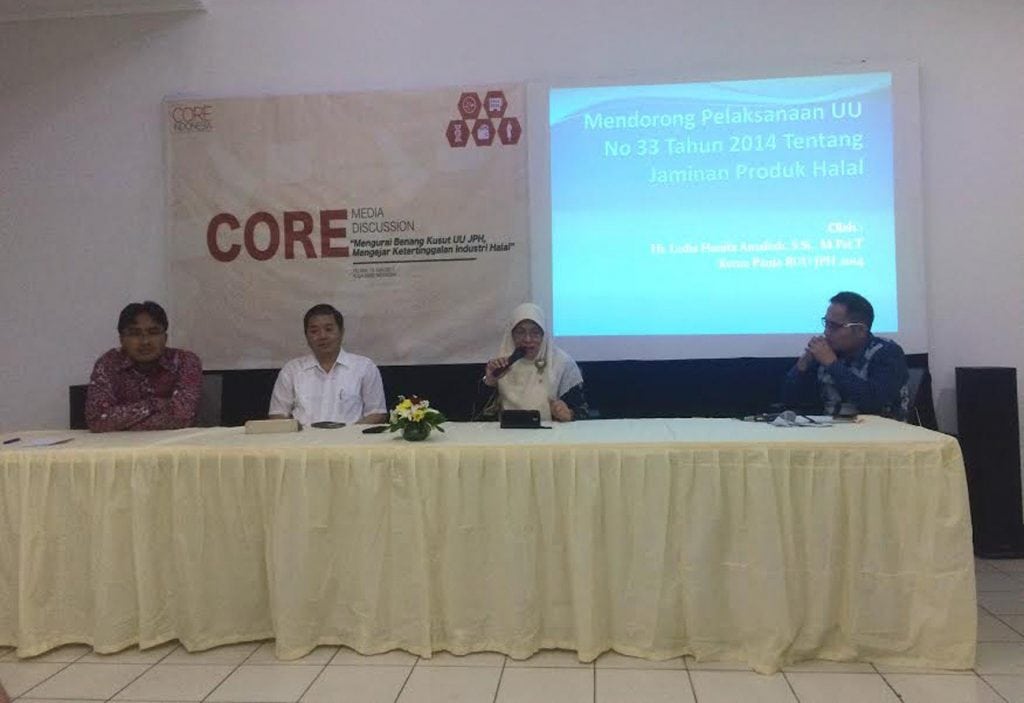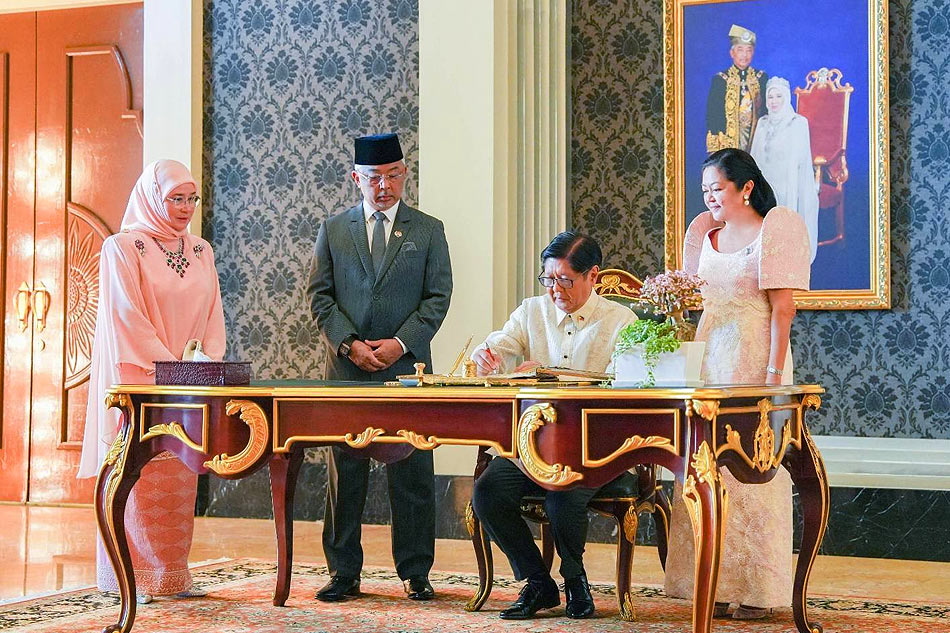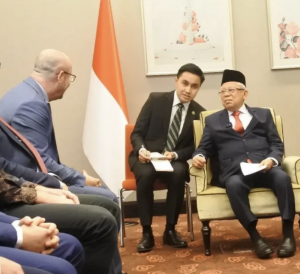The Jakarta Post
 Center of Reform on Economics (CORE) Indonesia researcher Akhmad Akbar Susamto (from left to right), Indonesian Food and Beverage Association (GAPMMI) chairman Adhi S. Lukman, lawmaker Ledia Hanifa Amaliah and CORE Indonesia executive director Mohammad Faisal speak at a discussion on halal industry held by CORE Indonesia in Jakarta, June 13. (JP/mrc)
Center of Reform on Economics (CORE) Indonesia researcher Akhmad Akbar Susamto (from left to right), Indonesian Food and Beverage Association (GAPMMI) chairman Adhi S. Lukman, lawmaker Ledia Hanifa Amaliah and CORE Indonesia executive director Mohammad Faisal speak at a discussion on halal industry held by CORE Indonesia in Jakarta, June 13. (JP/mrc)
“We need to think about a roadmap to develop a Halal industry [in Indonesia] that is consistent with the existing National Industry Development Masterplan (RIPIN),” said CORE researcher Akhmad Akbar Susamto on Tuesday.
He also called on the government to formulate detailed regulations as mandated by Law no. 33/2014 on Halal certification. “In accordance with the law, we should have had derivative regulations by 2016. But as of now we do not,” he said.
Indonesia lags behind other Muslim-majority countries in creating an ecosystem that supports Islamic economy, according to the Global Islamic Economy Indicators (GIEI) 2015 released by Thomson Reuters.
Indonesia ranks tenth out of 73 countries evaluated in the study, with the score of 36. Meanwhile, Malaysia leads the list with the score of 121, with the United Arab Emirates (UAE), and Bahrain rounding out the top three with 86 and 66, respectively. (mrc/bbn)



